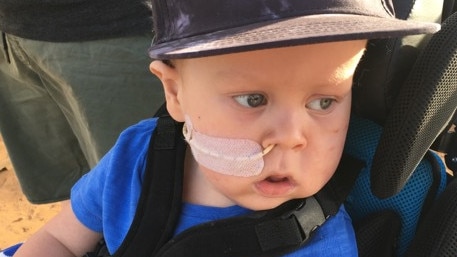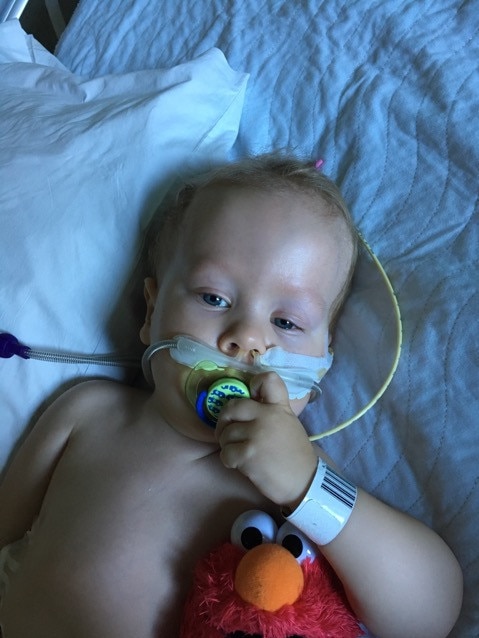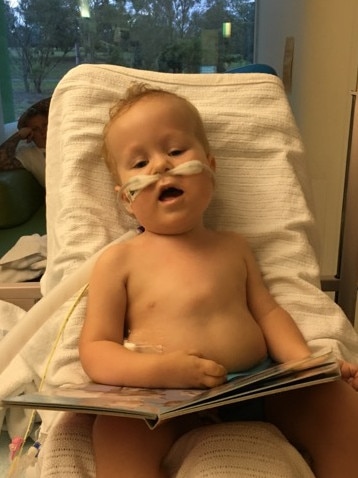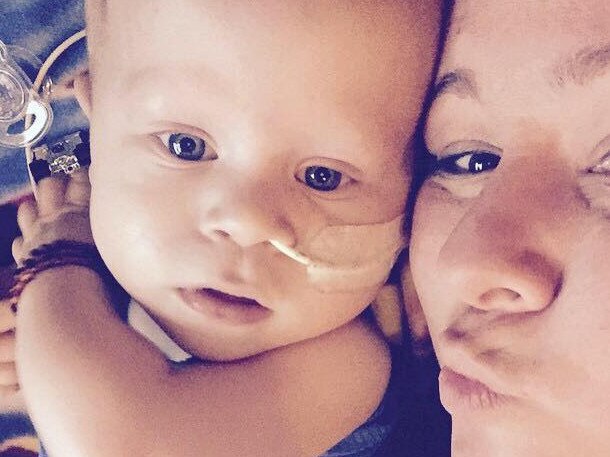Call for national newborn screening program to be upgraded to save lives
The national bloodspot screening program only screens for 25 conditions, although there is a capability to screen for 80 diseases, leading to calls to update the process to save babies’ lives.

NSW
Don't miss out on the headlines from NSW. Followed categories will be added to My News.
A simple expansion of the existing screening test for babies could save countless lives.
Experts, advocates and parents are calling for Australia’s national newborn screening program to be updated to include more than 50 extra conditions.
The newborn bloodspot screening program (NBS) tests all babies for 25 conditions including hypothyroidism and cystic fibrosis — but other countries test for as many as 80 conditions including spinal muscular atrophy and Pompe disease, conditions that if treated from birth, can mean the difference between life and death.
Felicity McNeill from Better Access Australia said the NBS has not been updated in three decades but, for just an extra $10 per baby, expanding the conditions screened for at birth could save lives like that of Nate Primmer, who died at age two of Pompe disease.
Pompe disease is caused by a lack of an enzyme that breaks down a complex sugar and, as it builds up, it irreversibly damages the muscles and organs. If detected at birth, the condition can be easily treated with the enzyme replacement.
“With Pompe, if you diagnose it, you are given the enzyme replacement and you live a normal healthy life and prevent that deterioration … but nobody is screening for Pompe,” Ms McNeill said.


Jenna Primmer said by the time her son was diagnosed at seven months of age, too much damage had already been done.
“He couldn’t sit up or roll over, he had an infection and lost any motor skills he did have and could not even turn his head — he wasn’t strong enough to turn his own head,” she said.
Nate died in 2016.
“If he had been diagnosed at birth I have every faith he would still be alive. There are kids in America that have been diagnosed from birth and they are at university, that’s the difference.
“If we had that screening our son would still be alive.”

The NBS is also not uniform across states and territories. In NSW, spinal muscular atrophy is screened for under a pilot program. The condition, which is one of the most common genetic cause of death in infants, can virtually be cured with a one-off gene therapy treatment or controlled by others drugs if caught early.
“We have a double problem here. There is a disparity with SMA if you are in NSW or ACT you will get access to the drug from the moment you are born but if you are anywhere else, you have to hope to show symptoms and diagnosed … most rare diseases do damage from the day they are born,” Ms McNeill said.
Submissions to include SMA in the newborn bloodspot screening program has been endorsed by the federal Government but states and territories are tasked with the rollout.
“We need systemic reform to ensure our newborn screening covers the broader range of diseases for which there are tests, and treatments. Time for the federal Government to step up and show leadership for our kids’ health,” Ms McNeill said.
The cost to expand the NBS is $10 per newborn or just $3 million per year.
“It’s driving me bonkers we are spending $100 per Covid test at the moment and we can’t spend $10 for a baby for a one-off (test),” Ms McNeill said.




